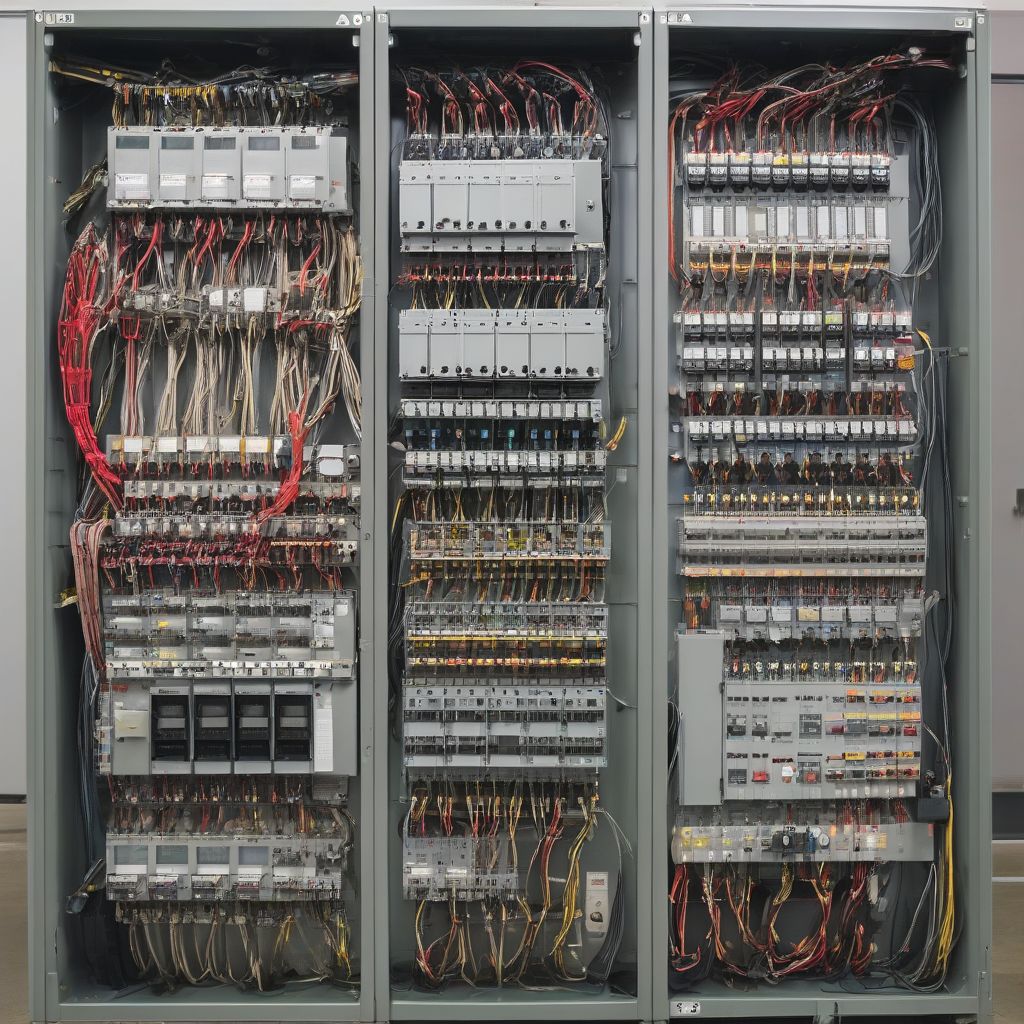The energy sector is undergoing a revolution, fueled by innovation and the pursuit of sustainable solutions. At the heart of this transformation lies electrical engineering, a field that’s shaping the future of how we generate, distribute, and consume energy. If you’re passionate about technology and its potential to power a brighter tomorrow, the electrical engineering major at Arizona State University (ASU) might be your pathway to a rewarding and impactful career.
Navigating the ASU Major Map for Electrical Engineering
Choosing your major is a pivotal decision, and ASU understands that. The ASU major map for electrical engineering provides a comprehensive roadmap for aspiring engineers, outlining the coursework, specializations, and resources available to guide you toward your professional goals. Let’s delve into the key aspects of this map:
1. Core Curriculum: Building a Strong Foundation
The electrical engineering curriculum at ASU is designed to equip students with a robust foundation in the fundamental principles of the field. This includes:
- Circuit Analysis: Understanding the behavior of electrical circuits is paramount. You’ll explore concepts like Ohm’s Law, Kirchhoff’s Laws, and network analysis techniques.
- Electronics: Delve into the world of semiconductor devices, transistors, amplifiers, and digital logic circuits, which form the building blocks of modern electronics.
- Electromagnetism: Study the interplay between electricity and magnetism, understanding electromagnetic fields, waves, and their applications in various technologies.
- Signals and Systems: Analyze and process signals, both analog and digital, a crucial skill in areas like communication systems and control systems.
- Microcontrollers and Embedded Systems: Gain hands-on experience with microcontrollers and the design of embedded systems, which are ubiquitous in devices ranging from smartphones to industrial automation.
2. Specializations: Focusing Your Expertise
To cater to diverse interests and career aspirations, the electrical engineering major at ASU offers a range of specializations. These allow you to tailor your education and focus on areas that ignite your passion. Some popular specializations include:
- Power and Energy Systems: Address the world’s growing energy demands by specializing in the generation, transmission, and distribution of electrical power. Explore renewable energy sources, smart grids, and the integration of sustainable solutions.
- Control Systems: Design and analyze systems that regulate and automate processes, finding applications in fields like robotics, aerospace, and industrial automation.
- Communications and Signal Processing: Dive into the world of wireless communication, digital signal processing, and network technologies, contributing to advancements in telecommunications, data transmission, and multimedia systems.
- Microelectronics and VLSI Design: Focus on the design and fabrication of integrated circuits (ICs) and very-large-scale integration (VLSI) systems, powering the next generation of electronic devices.
3. Hands-on Learning: Bridging Theory and Practice
ASU emphasizes practical experience to complement classroom learning. The electrical engineering program offers:
- Labs and Projects: Engage in hands-on experiments and projects that solidify your understanding of theoretical concepts and provide valuable practical skills.
- Research Opportunities: Participate in cutting-edge research alongside renowned faculty, contributing to advancements in areas like renewable energy, nanotechnology, and robotics.
- Internships: Gain real-world experience through internships with industry partners, applying your knowledge to solve practical engineering challenges.
Answering Your Questions: Addressing Common Queries
Choosing the right major is a significant decision, and it’s natural to have questions. Here are some common queries about the ASU electrical engineering major:
1. What are the career prospects for electrical engineering graduates?
Electrical engineers are highly sought after in a wide range of industries, including:
- Renewable Energy: Design and implement solar, wind, and other renewable energy systems.
- Power and Utilities: Ensure the reliable generation, transmission, and distribution of electricity.
- Technology: Develop cutting-edge electronics, telecommunications systems, and consumer devices.
- Aerospace: Contribute to the design and development of aircraft, spacecraft, and related systems.
- Automotive: Work on electric vehicles, autonomous driving systems, and advanced automotive electronics.
2. What is the average salary for electrical engineers?
Salaries for electrical engineers vary based on experience, location, and industry. However, according to the U.S. Bureau of Labor Statistics, the median annual wage for electrical engineers was $103,390 in May 2020.
3. What are the admission requirements for the electrical engineering major at ASU?
Admission requirements can vary, but generally include:
- A strong high school GPA with a focus on math and science courses.
- Competitive scores on standardized tests like the SAT or ACT.
- Letters of recommendation.
- A personal statement highlighting your interest in engineering.
Beyond the Classroom: Enriching Your ASU Experience
ASU offers a vibrant campus life and numerous resources to support your academic journey:
- Student Organizations: Join engineering clubs like the Institute of Electrical and Electronics Engineers (IEEE) student branch to connect with peers, attend workshops, and participate in competitions.
- Tutoring and Academic Support: Utilize tutoring services, study groups, and academic advisors to enhance your understanding of challenging concepts.
- Career Services: Attend career fairs, workshops, and networking events to explore job opportunities and connect with potential employers.
Conclusion: Powering Your Future with an ASU Electrical Engineering Degree
The ASU major map for electrical engineering provides a clear pathway for students passionate about technology and its potential to shape a brighter future. With a comprehensive curriculum, diverse specializations, hands-on learning opportunities, and a supportive campus environment, ASU empowers you to unlock your potential and embark on a rewarding career in this dynamic and ever-evolving field.

